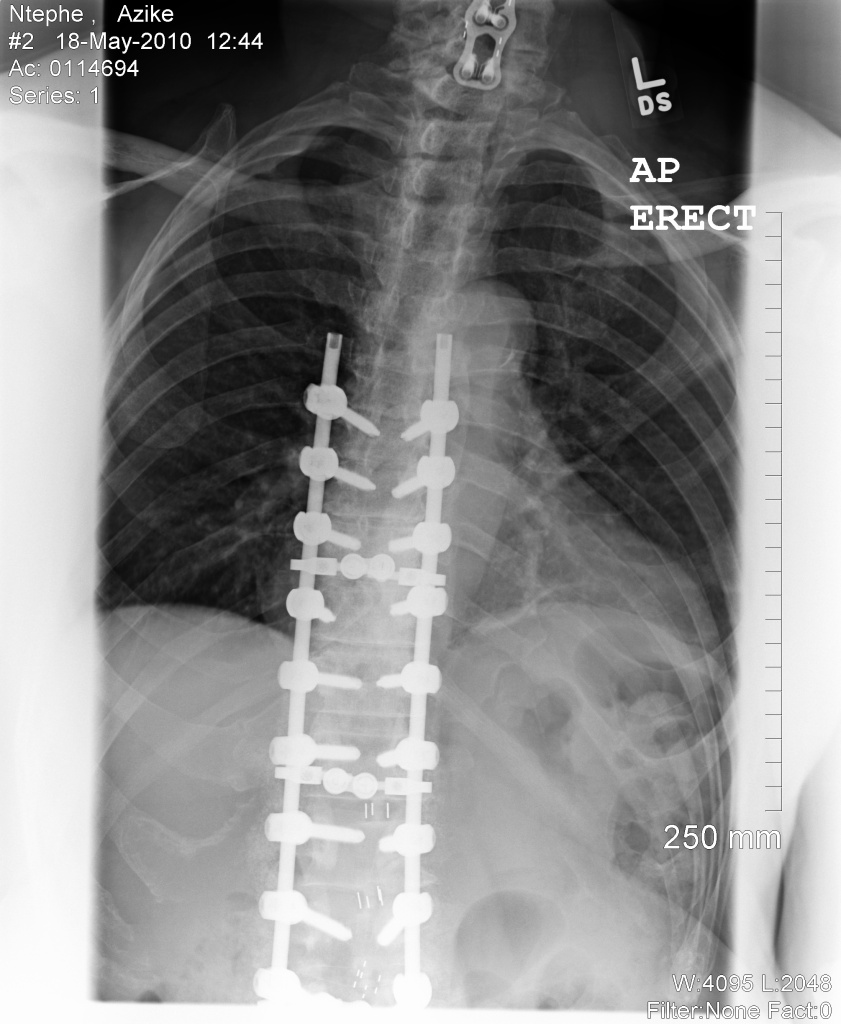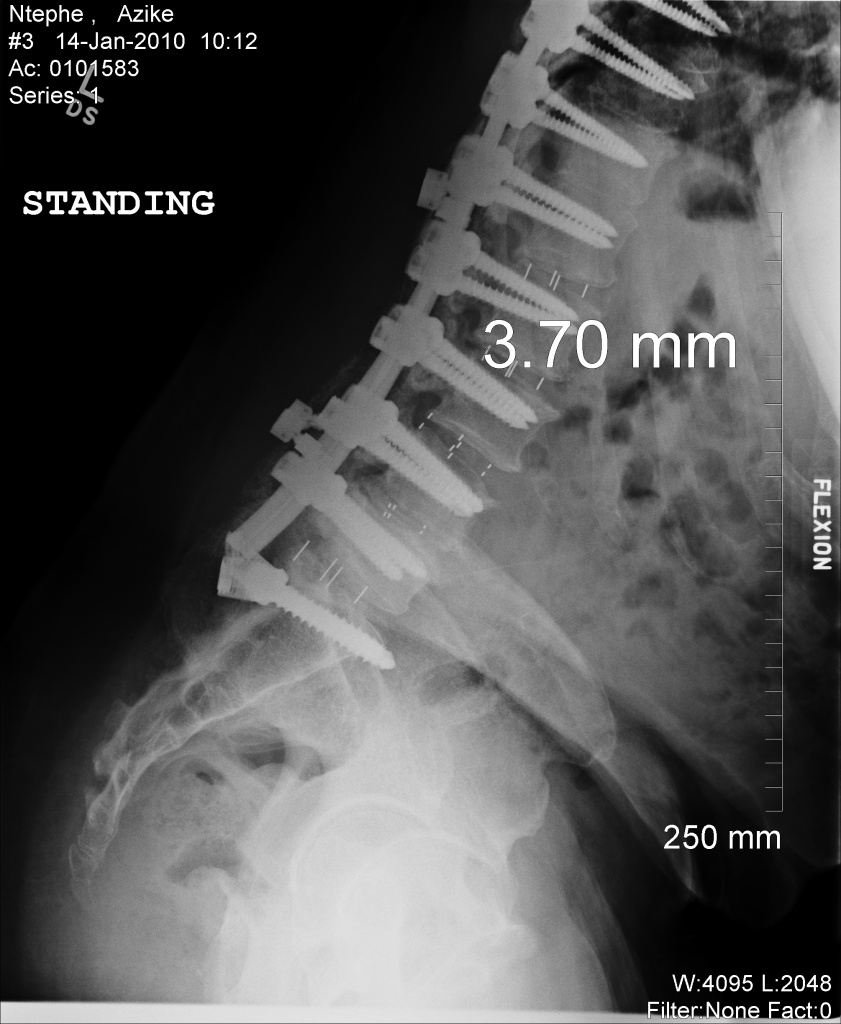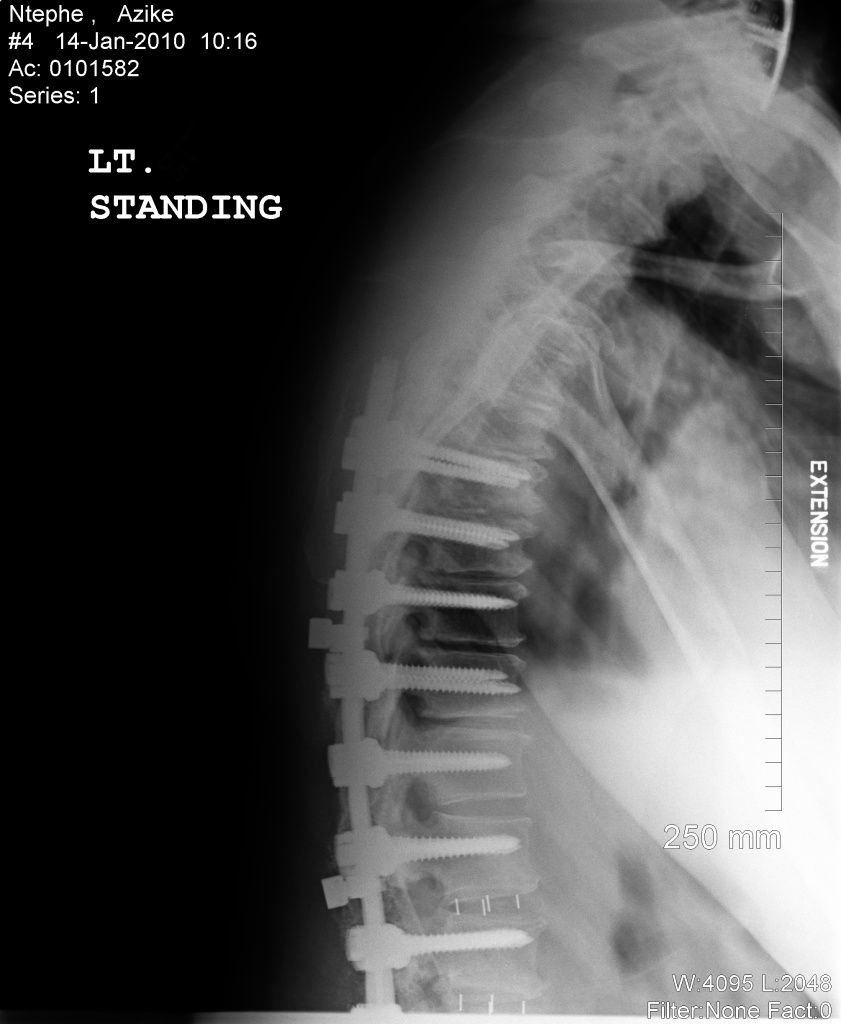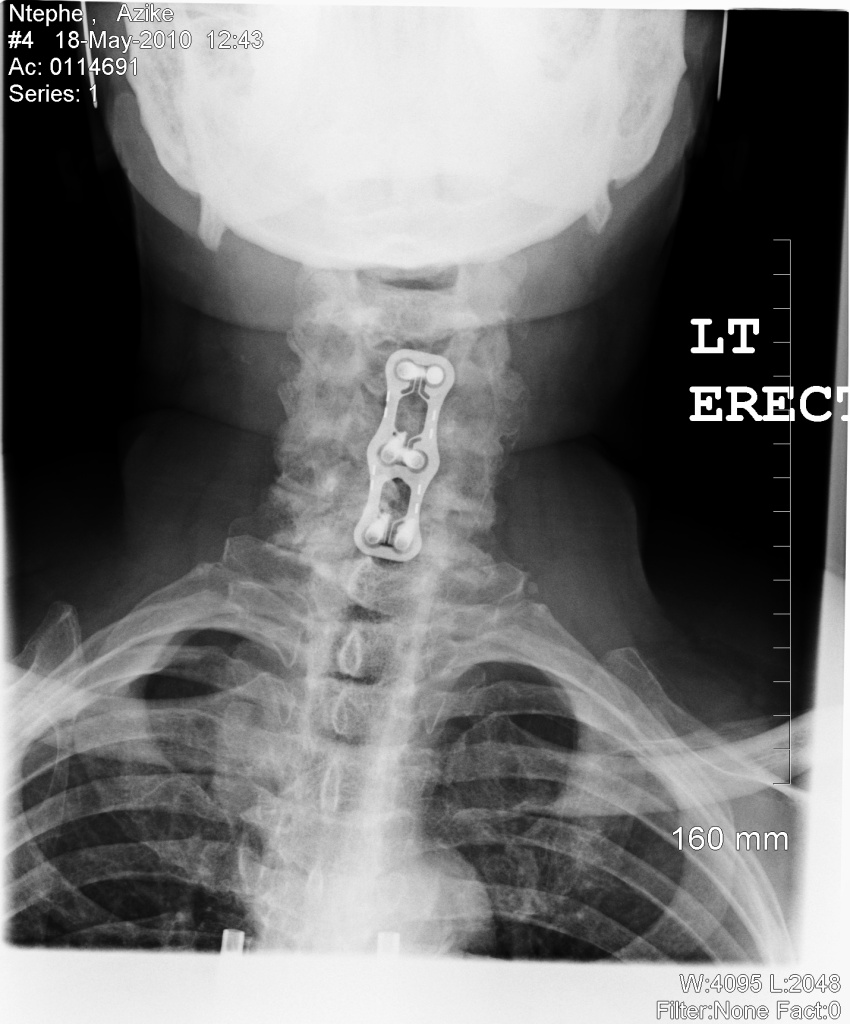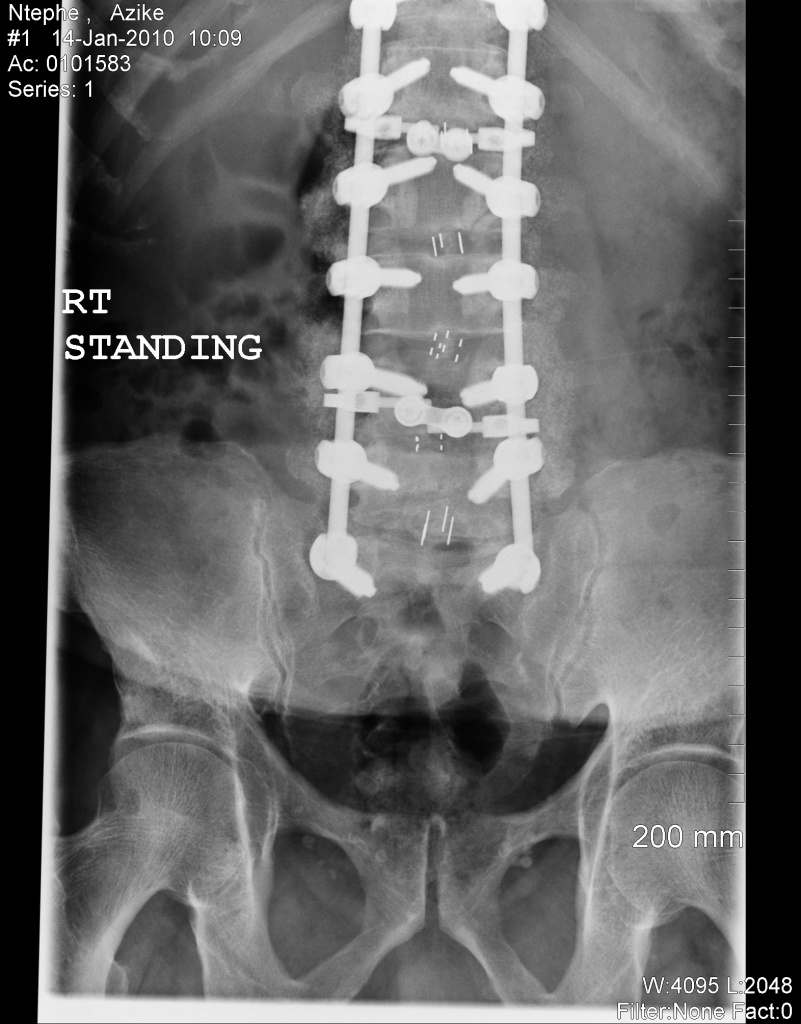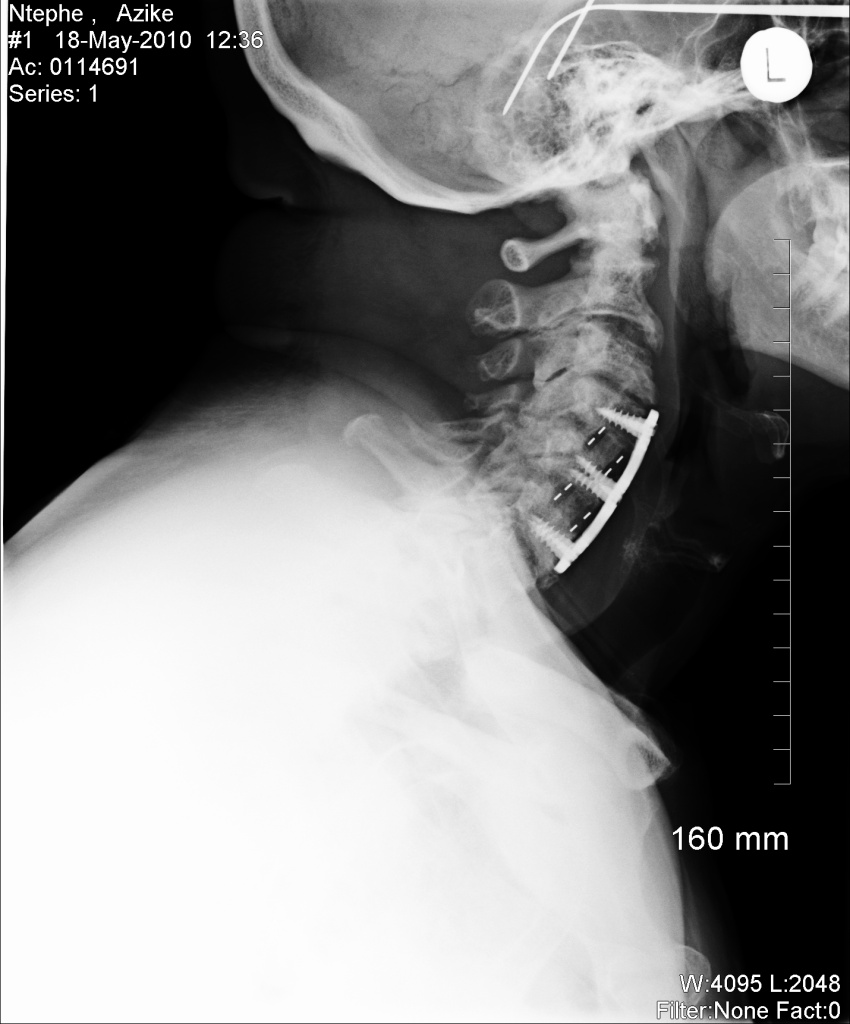If you're a spinal surgery candidate these days, you might want to ask your doctor an additional question: Do you have a financial interest in the device you’re implanting?
Over the last decade, California and the rest of the U.S. have seen rapid growth in what are called Physician Owned Distributorships, or PODs, in the spinal device business.
A POD is a medical device business in which a physician is an investor and a distributor — a salesman — of the parts. The physician investors can and do use the devices they sell in the surgeries they perform, and that creates a financial incentive to do more and at times unnecessary surgeries, critics argue.
PODs first appeared in California in 2003 and are now in at least 20 states, although no one knows exactly how many there are or where they all are, since the federal government doesn't track or regulate them.
The U.S. Department of Health and Human Services' Office of Inspector General has been concerned with physician investments for years, issuing its first Special Fraud Alert in 1989 (about an earlier version of the POD business model), again in 2006 and most recently in March 2013. In the latest warning, it wrote that PODs are "inherently suspect under the anti-kickback statute."
The question is whether physician investors in PODs are receiving payments in exchange for referring patients to hospitals that purchase devices those physicians distribute, which would be a criminal offense.
"The fraud alert issued about PODs was very strongly worded, saying that they were very concerned with the use of PODs in the health care industry and the fact that it could ultimately drive up medical costs," said Troy Barksy, an attorney who spent 11 years at Health and Human Services' Office of General Counsel. He added that there is worry PODs may impact patient care. "It could drive unnecessary services, and ultimately lead to patients getting care they don't need," he said.
Enforcement action
Without a set of standards or rules, many PODs are operating in a gray zone. But that may change with an ongoing federal law enforcement investigation.
The Department of Justice is looking into what it said is a chain of PODS set up by a firm called Reliance Medical Systems. In a court filing in a Michigan federal court, it said it is investigating whether Reliance paid kickbacks to 35 physicians. The document separately lists 35 physicians it characterizes as "Reliance investors."
Reliance, which has said it moved away from the physician ownership model in 2012, has claimed in a court filing that its business approach was legal.
One of those under investigation is Aria Sabit, who used to perform spinal surgeries in Ventura but has since moved to Michigan. Department of Justice investigators allege in the court filing that Sabit's rate of spinal device surgeries dramatically increased — fourfold in the case of surgeries involving "cage" devices — after he became an investor in a POD. They also allege Sabit was paid $30,000 a month by the distributorship. In depositions, Sabit repeatedly asserted that he had no involvement in a POD.
For his part, Redlands surgeon John Steinmann told KPCC that he owns 11 PODs and blames political pressure from the big spinal device firms for the attacks on distributorships. He insists his PODs are cost savers, arguing, "We have demonstrated … in our community a million dollars a year in health care savings."
But the Health and Human Services Inspector General found that prices for PODS products were the same as or higher than those of non-POD manufacturers.
After reviewing its contract with a POD last year, Palomar Health in San Diego cut ties with the distributorship after determining that the health provider would save more than $700,000 by doing so. Palomar also found that the only doctors using the POD devices were investors in the POD or shared a practice with the physician investors. In addition, national hospital chains Tenet and HCA have recently adopted "no POD" policies.
Steinmann said his PODS operate in a transparent manner, although he acknowledges a need within the industry for guidance. "We have worked very hard in three years to gain acceptance on a set of standards that would require transparency and require disclosure and require legal compliance and require personal and financial investment," he said.
Challenging the industry's titans
PODs are changing the nature of the spinal-device marketplace, said Evan Anderson, a former device engineer and salesman. "The sales rep really doesn't have a role when the surgeon can play the role of the sales rep," he said. PODs are also posing a competitive challenge to more established firms selling spinal implant hardware.
The spinal device industry has seen dramatic growth in sales, going from $250 million in 1994 to $7 billion in 2009, according to Stan Mendenhall, editor of the Orthopedic Network News, an industry newsletter. Much of that growth can be attributed to the huge markups in hardware used.
For example, an "average pedicle screw" — used in spinal surgeries — costs about $60 to make, while the average selling price "is over $1,000," Mendenhall said.
KPCC obtained a PowerPoint presentation by Orange County-based Atlas Medical LLC, which described itself as a consulting company that provided "Turn key [sic] POD set up" to doctors. The PowerPoint lists device markups, including a screw that costs $310 and sells for $1,100. Atlas Medical owner Aaron Jennings said the firm is no longer in business.
Traditionally, five major companies dominated the spinal hardware business. But as PODs have proliferated over the past decade, the big five's market share slipped from 86 percent to 67 percent, according to research by Orthopedic Network News. In contrast, the hip and knee device industry remained steady, Mendenhall said.
"Much of the spine [business], about 20 percent of sales, has gone to companies that didn't exist five years ago or were not in the top five," said Mendenhall.
As their market share fell to PODs, industry leaders traveled to Washington to inform the Department of Health and Human Services' Office of Inspector General, among others, according to Barksy, the former HHS attorney.
Federal scrutiny
U.S. Sen. Orrin Hatch (R-Utah) has been a vocal critic of PODs, and in 2011 joined four other senators in requesting that HHS' Inspector General investigate the distributorships. The Inspector General issued a report last October that found that PODs were linked to higher rates of spinal surgeries.
"Unfortunately my suspicions of physicians using PODs were confirmed," Hatch told KPCC, adding, "the report showed that PODs can lead to over-utilizations [and] force unnecessary procedures for patients who really might not need that."
The report's findings were based on questionnaires submitted to 596 hospitals, 589 of which responded. Investigators also looked at Medicare claims for spinals surgeries, and found the following:
- One in five spinal fusion surgeries billed to Medicare in 2012 used POD devices.
- Spinal fusions doubled at hospitals that used PODS compared with those that did not.
- Spinal surgeries tripled after hospitals began purchasing from a POD.
- Surgeries that used POD devices used fewer devices but did not have lower costs.
For Dr. Scott Lederhaus, president of the Association of Medical Ethics and a longtime critic of PODs, the Justice Department investigation needs to send a message. "Somebody needs to go to jail because just a fine isn't going to do it," Lederhaus said, adding, "the fines are a lot less than what they would make in a year, so why bother worrying about what you'll get fined."
